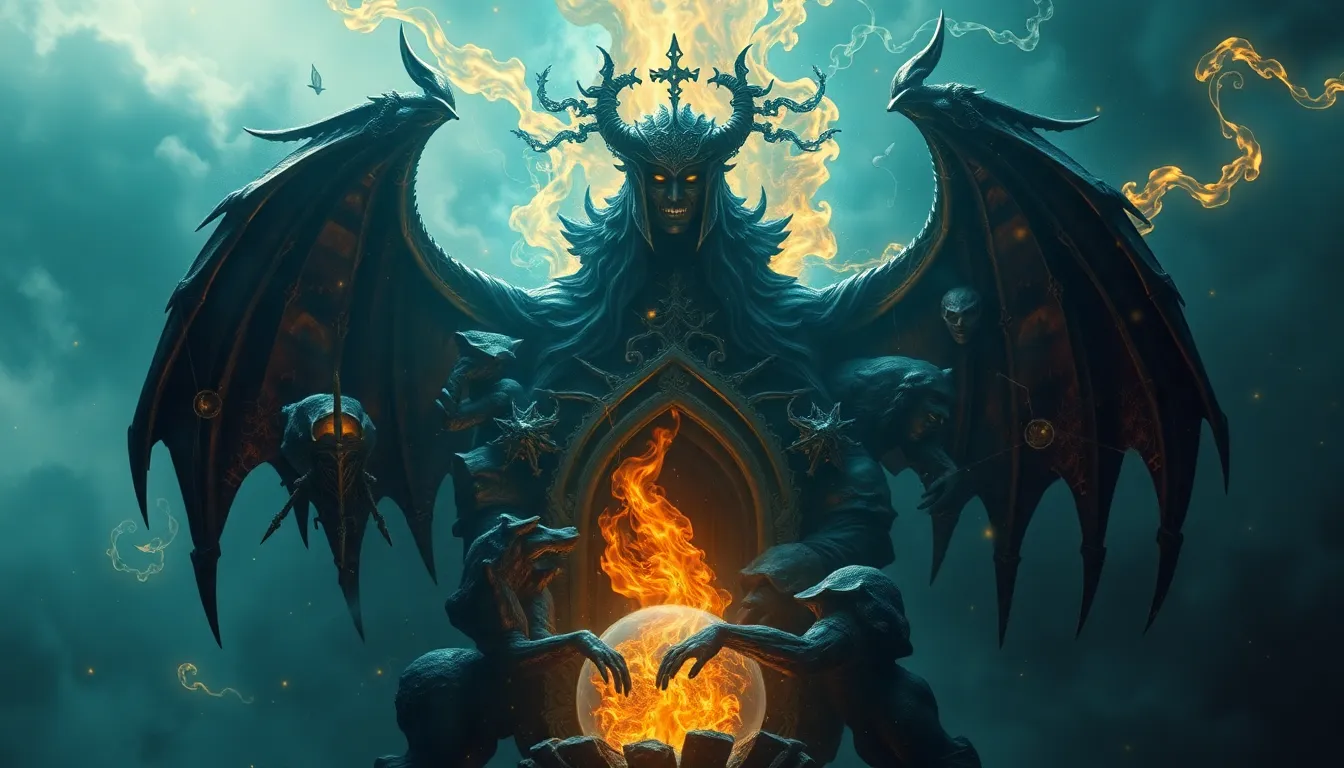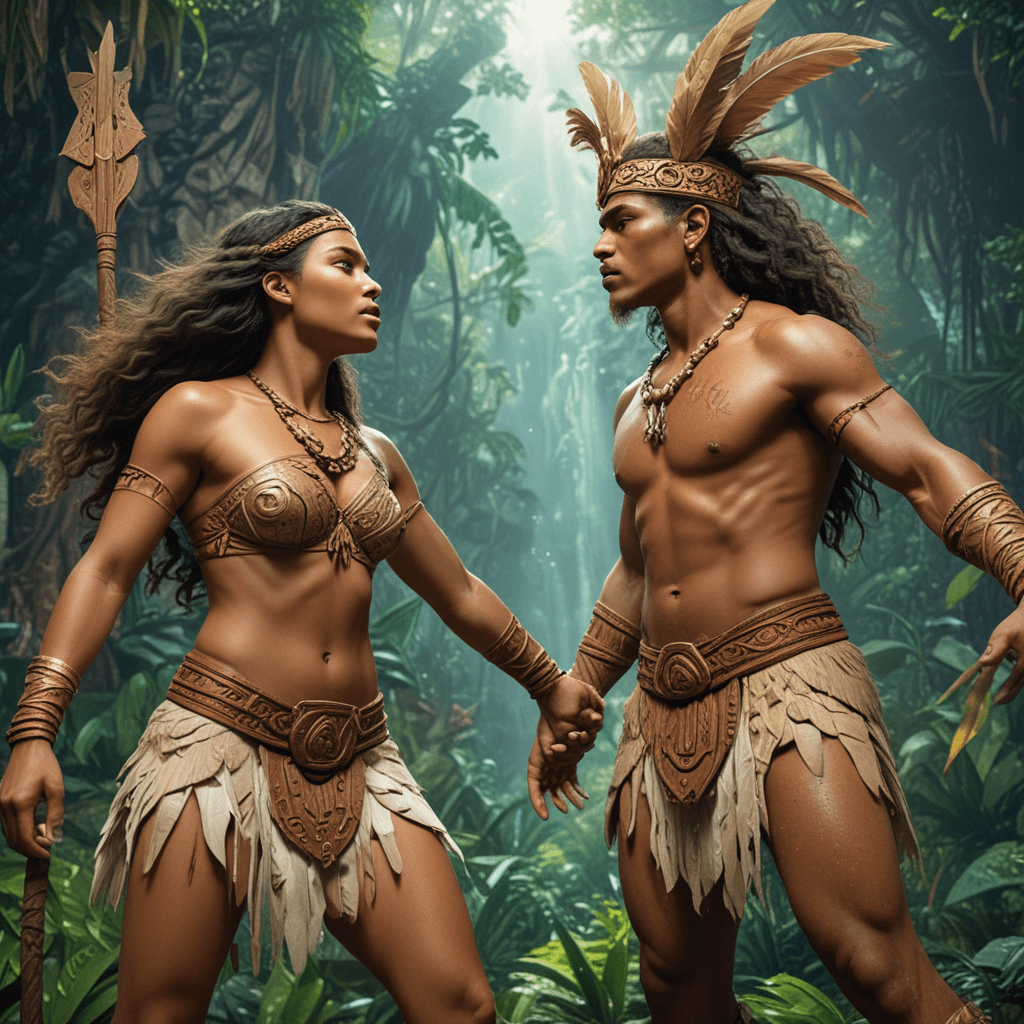The Alchemy of Legends: Transformations That Spark Imagination
Introduction to Alchemy in Legends
Alchemy, historically regarded as a precursor to modern chemistry, encompasses much more than the mere quest to turn base metals into gold. In literary and mythological contexts, alchemy symbolizes transformation, transmutation, and the quest for enlightenment. Legends, filled with rich narratives and profound characters, embody this transformative power, allowing us to explore the depths of human experience through the lens of myth.
Legends often serve as mirrors reflecting societal values, fears, and aspirations. They allow us to delve into the extraordinary, overcoming the mundane through fantastical transformations that spark our imagination and inspire change.
The Essence of Transformation: What Makes a Legend?
What distinguishes a legend from mere folklore or historical accounts? The essence of a legend lies in its characters and their transformative journeys. Legendary figures often undergo significant changes, both physically and metaphorically, which drive the narrative forward. This transformation can manifest in various forms:
- Physical transformations: Characters may change their shape, size, or even species.
- Psychological growth: The journey often leads to profound personal insights and emotional evolution.
- Social change: Legends frequently depict characters who challenge societal norms and inspire collective progress.
The transformative arc of a legendary character is crucial for storytelling, as it not only captivates the audience but also resonates with the universal human experience of change and growth.
Famous Transformations in Mythology
Throughout mythology, key transformations highlight the dynamic nature of characters and their environments. In Greek mythology, the story of Daphne, who transforms into a laurel tree to escape Apollo, serves as a poignant example of transformation intertwined with themes of desire and autonomy.
Similarly, Zeus, the king of the gods, frequently undergoes transformations to interact with mortals, reflecting both his power and the complexities of divine influence in human affairs. In Norse mythology, Loki’s shape-shifting abilities allow him to navigate various realms and alter the course of events, embodying the chaotic nature of change.
Case Studies:
- Daphne: A nymph turned laurel tree, symbolizing resilience and the struggle for freedom.
- Zeus: The god of thunder who morphs into different forms, showcasing authority and the interplay of divinity and humanity.
- Loki: A trickster god whose transformations emphasize the fluidity of identity and the unpredictable nature of fate.
Alchemy as a Metaphor for Personal Growth
Legends often reflect the human experience of change and growth, serving as allegories for our own life journeys. The transformative processes depicted in these stories resonate deeply with psychological perspectives on personal development.
For instance, Carl Jung’s theory of individuation suggests that individuals must confront various aspects of themselves to achieve wholeness. In many legends, characters face trials that force them to confront their fears, desires, and identities—ultimately leading to transformation and enlightenment.
Cultural Variations of Transformation Tales
Transformation myths are prevalent across cultures, each offering unique insights into societal values and beliefs. A comparative analysis reveals striking similarities and differences:
- Native American folklore: Shape-shifting often symbolizes a deep connection to nature and spirituality.
- African tales: Transformations frequently highlight moral lessons and communal values.
- Asian mythology: Legends often explore the duality of existence, such as the balance of yin and yang through transformation.
The significance of these tales lies in their ability to convey universal truths about the human condition, illustrating that transformation is a central theme in the narratives that shape our understanding of the world.
Literary Transformations that Resonate Today
Modern literature continues to explore themes of transformation, often drawing inspiration from legendary tales. Franz Kafka’s “The Metamorphosis” epitomizes the struggle of personal change, presenting a haunting narrative of alienation and identity crisis through the physical transformation of Gregor Samsa.
Other notable authors, such as Gabriel García Márquez and Haruki Murakami, weave elements of magical realism into their works, where characters undergo surreal transformations that challenge perception and reality.
The Role of Transformation in Popular Media
Film, television, and video games have embraced the theme of transformation, bringing legendary tales to contemporary audiences. Adaptations often reimagine classic legends, highlighting their relevance in modern contexts.
For example:
- Disney’s animated films frequently depict transformations, such as in “Beauty and the Beast,” where love catalyzes change.
- Television series like “Game of Thrones” explore the transformative journey of characters in a morally complex world.
- Video games often incorporate shape-shifting mechanics, allowing players to experience transformation directly.
These adaptations not only entertain but also reshape public perception of classic legends, making them accessible and relatable to new generations.
The Symbolism of Alchemy in Transformational Stories
Alchemy serves as a profound metaphor within transformational stories, emphasizing the journey from base materials to gold. This alchemical process symbolizes human potential and the quest for self-actualization.
Key alchemical symbols include:
- The Philosopher’s Stone: Represents the ultimate goal of transformation and enlightenment.
- Mercury: Symbolizes fluidity and adaptability, essential qualities in the journey of change.
- Gold: Represents the highest achievement, often associated with wisdom and spiritual enlightenment.
These symbols highlight the deep, often spiritual significance of transformation, encouraging individuals to embrace their own journeys toward growth and fulfillment.
The Impact of Transformations on Society and Culture
Legends of transformation inspire social change and innovation, resonating through generations. Characters who undergo profound changes often become symbols of hope and resilience, encouraging others to challenge the status quo.
Transformational figures, such as Nelson Mandela and Mahatma Gandhi, embody the spirit of change, illustrating how personal growth can lead to societal transformation. Their stories serve as reminders of the power of resilience and the potential for individuals to effect change in the world.
Conclusion: The Lasting Legacy of Transformative Legends
Transformation lies at the heart of many legends, serving as a powerful narrative device that captivates and inspires. By exploring the transformative journeys of legendary figures, we not only gain insight into their stories but also into our own potential for growth.
As we reflect on the importance of transformation in legends, we are encouraged to embark on our own journeys of change. Every experience, whether joyous or challenging, holds the potential for transformation. Let us explore our own narratives and embrace the alchemical journey toward self-discovery and enlightenment.




